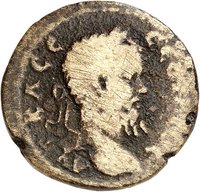
"Heraclitus of Ephesus (/ˌhɛrəˈklaɪtəs/; Greek: Ἡράκλειτος ὁ Ἐφέσιος, translit. Hērákleitos ho Ephésios, pronounced [hɛː.rá.kleː.tos ho e.pʰé.si.os]; "Glory of Hera" c. 535 – c. 475 BC, fl. 500 BC) was an Ancient Greek, pre-Socratic, Ionian philosopher and a native of the city of Ephesus, which was then part of the Persian Empire.
His paradoxical philosophy and appreciation for wordplay and cryptic utterances has earned him the epithet "The Obscure" since antiquity. He wrote a single work, only fragments of which have survived, increasing the obscurity associated with him. Heraclitus has thus been the subject of numerous interpretations. According to the Stanford Encyclopedia of Philosophy, Heraclitus has been seen as a "material monist or a process philosopher; a scientific cosmologist, a metaphysician and a religious thinker; an empiricist, a rationalist, a mystic; a conventional thinker and a revolutionary; a developer of logic—one who denied the law of non-contradiction; the first genuine philosopher and an anti-intellectual obscurantist."" - (en.wikipedia.org 11.08.2021)



![[Heraklit; Heraclitus]](/data/nds/resources/images/202009/200w_000001-5f5822a689824.jpg)

![[Ausspruch des Heraklit]](/data/nds/resources/images/202009/200w_000001-5f58234f7d52c.jpg)